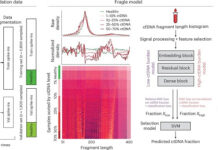Sir Demis Hassabis, the co-founder of Google DeepMind and a knighted British AI visionary, continues to astound the world—not only with groundbreaking discoveries in artificial intelligence and biology, but also with his passion for intellectual games like chess and poker. Despite having unraveled some of life’s most profound scientific secrets, Hassabis remains driven by a deep curiosity for the unknown.
Is AI About to Revolutionize Medicine?
In a CBS 60 Minutes interview shared by artificialintelligencenews.in on Instagram, Hassabis made a bold prediction: AI could potentially eliminate all diseases within the next decade. According to The Economic Times, he highlighted a staggering statistic—developing a single drug currently takes an average of ten years and billions of dollars. But with AI, he believes this timeline could shrink dramatically, perhaps to just weeks.
His confidence is far from baseless. DeepMind’s AI has already demonstrated its power by deciphering the structures of over 200 million proteins in just one year—a task that, until then, had only managed to decode 1% over several decades. This breakthrough has transformed the landscape of drug discovery, allowing researchers to identify promising treatments at a pace previously unimaginable.
AI: A New Partner in Scientific Discovery
While current AI systems lack innate curiosity and intuition, Hassabis envisions a future where AI doesn’t just assist science—it actively drives it. “In the next five to ten years,” he predicts, “AI systems will be capable of generating new scientific hypotheses independently.”
This shift would mark a turning point in scientific progress, elevating AI from a tool to a co-discoverer. It’s a bold vision, but one grounded in reality. Together with his research partner John Jumper, Hassabis won the 2024 Nobel Prize in Chemistry for their work on AI-based protein prediction. Their achievements are already shaping the future of medicine, biology, and beyond.
Addressing the Risks of AI Advancement
Despite the optimism, Hassabis remains aware of AI’s darker potential. He underscores two key concerns: the misuse of AI by malicious actors and the challenge of keeping advanced AI aligned with human values. “Can we ensure they remain on the guardrails?” he asks, referring to the safety measures needed to manage autonomous AI systems responsibly.
In his dual role as AI Advisor to the UK Government and head of DeepMind and Isomorphic Labs, Hassabis is not just influencing scientific discovery—he’s shaping global AI policy to safeguard humanity’s future.
The Expanding Role of AI in Healthcare
Today, artificial intelligence is already transforming healthcare in powerful ways. AI-driven tools enhance diagnostics, speed up drug development, and enable personalized treatments. Clinicians now rely on AI to read medical images, detect diseases like cancer and sepsis, and make informed decisions in real time.
During the COVID-19 pandemic, AI systems proved crucial in tracking patients, performing screenings, and managing healthcare logistics. These advancements are only a glimpse of what lies ahead.
A Vision of a Healthier Future
Sir Demis Hassabis stands at a pivotal intersection of scientific genius and technological foresight. From a childhood prodigy to a leading AI researcher, his predictions are rooted not in fantasy but in proven innovation. As the world faces growing challenges in health and medicine, Hassabis offers a radical yet promising vision: an era of abundance, fueled by AI, where disease may become a thing of the past.
























